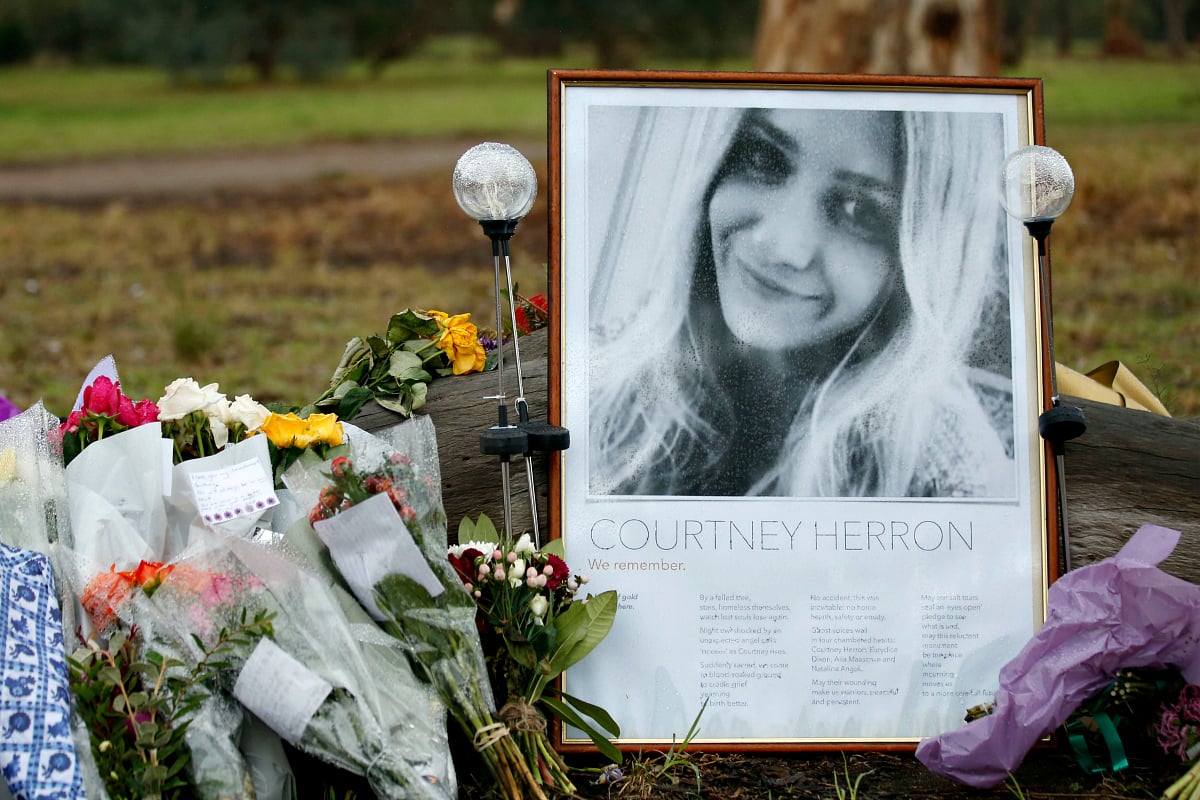
The following deals with domestic violence, which may be triggering for some readers.
Courtney Herron was 25 when she was killed in Melbourne's Royal Park in May, 2019, bludgeoned to death in the darkness by a man whom she'd met just hours earlier.
The attacker used a fallen tree branch as a weapon. It was a frenzied assault, unrelenting; roughly 50 minutes from the first strike to the last.
Once it was over, he tied her legs together and dragged her to a nearby clearing, covered her with leaves and a branch, and masked her face with a large piece of concrete.
It was there that dog walkers found her body later that morning.
The attacker, Henry Hammond, 28, was yesterday declared not guilty of murder by reason of mental impairment, after a magistrate found he was in the midst of a schizophrenic relapse at the time of the killing.
His mental illness was identified by the court as the most significant factor in his actions that evening; without it, a psychiatrist testified, "the attack on the victim would not have occurred".
It also would not have occurred if he remained behind bars for attacking his ex-girlfriend.
How Henry Hammond walked free from prison.
In December 2018, Henry Hammond was sentenced to 10 months behind bars for attacking his former partner at her St Kilda East home that August.
Days after their relationship ended, the father-of-two threatened her with a kitchen knife, then punched her in the face, breaking her eye socket, and attempted to strangle her as she tried to flee.


Top Comments